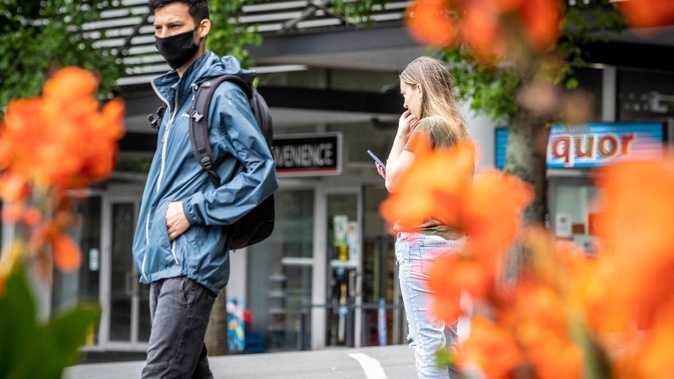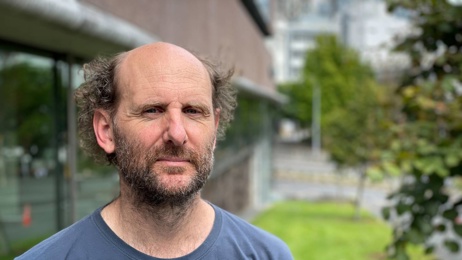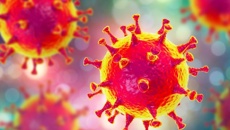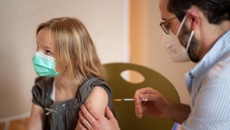
There are 101 Covid-19 cases in the community as Cabinet prepares to announce what colours the country will be in to welcome the new year.
Cabinet will today consider case numbers, vaccination rates and the length of time the new traffic light system has been in place.
The decision comes as the number of Covid-19 case numbers has declined in recent days from its 200-plus peak to hovering around the low 100 figure.
Today is Cabinet's last chance to change traffic light settings until January 17.
Prime Minister Jacinda Ardern will then unveil Cabinet's decision at 4pm.
From this Wednesday, rapid antigen testing will be available for free at participating pharmacies for asymptomatic unvaccinated people aged 12 years and 3 months and over who are travelling during the holiday period.
Today's cases
There are 101 Covid-19 cases today and 61 people with the virus in hospital, four of who are in ICU.
Today's Covid cases are in Auckland (97), Bay of Plenty (1), Taranaki (1), Nelson-Marlborough (1) and Canterbury (1).
Of the cases, both in Taranaki and Nelson-Tasman cases were first announced at the weekend but are being officially included in today's numbers. The other cases are in Tauranga and Christchurch.
Of the 61 people in hospital with Covid-19, 13 are in North Shore; 19 in Auckland, 25 in Middlemore, two in Waikato and two in Tauranga.
Four people are in ICU - two in Auckland, one in Middlemore, one in North Shore.
There are two cases at the border. The first arrived from Germany via UAE on 10 December. They are isolating in Christchurch. The other arrived from Cambodia via Singapore on November 3 and is isolating in Auckland. That case was earlier put down as being under investigation but has been confirmed.
Of the cases in hospital and their vaccination status, 64 per cent are unvaccinated. 14 per cent are pare partially immunised - having one dose, while 14 per cent have had one dose, while 19 per cent are fully vaccinated. Of the remaining 4 per cent their status is unknown.
The average age of hospitalisations is 50.
Yesterday there were 103 new cases of Covid-19 in the community - up on Saturday's tally of 63.
It comes as Auckland business leaders are calling on the government to move the city from the red traffic setting to orange based on the falling case numbers and high vaccination rates.
All Auckland's DHBs have now reached the 90 per cent double-vaccinated rate.
The Prime Minister told RNZ this morning it was still early days of transitioning into the traffic light system and they wanted to make sure they saw the full impact of that easing.
"We've only been in these settings for about 10 days."
When Cabinet met today, it would receive the additional information from the public health team and consider all views. A decision would then be announced at 4pm.
"We will take an approach that will stand us in good stead. One thing we are mindful of is if you do move too soon you run the risk of escalating cases and you end up in higher restrictions. We want to go the distance."
Although throughout the pandemic there would be a bit of "going back and forward", she said.
When Auckland's border lifted on Wednesday, Ardern encouraged people planning to travel out of the region for the Christmas period to continue to take safety precautions.
However epidemiologist Rod Jackson felt it was too soon to make any changes because 10 days since Freedom Friday wasn't long enough.
"If we loosen restrictions more we are going to end up going up again by the end of the year."
Australia was a good indication of what happened when restrictions loosened and case numbers were already rising again in NSW cases and no longer dropping in Victoria.
Bars were the only ones keen to move as most restaurants seemed to be doing ok, he told RNZ.
Te Pūnaha Matatini Covid-19 modeller Professor Michael Plank said the Omicron variant could spread quite quickly so believed there could be a "clear case" for delaying the border reopening from mid January and keep MIQ in place for longer.
This would give time for New Zealanders to have their booster shots as UK data showed those with the two doses and the booster had a much higher level of protection than those with just two doses.
Even if the majority of cases were mild due to the large number of cases likely, it could still put a significant number of people in hospital, he told RNZ.
"The fact that it can spread so quickly and infect people who have been vaccinated more easily means it is certainly likely to cause problems."
Both Ardern and the experts expected more information around the severity of Omicron to be known in the next few weeks.
Take your Radio, Podcasts and Music with you









